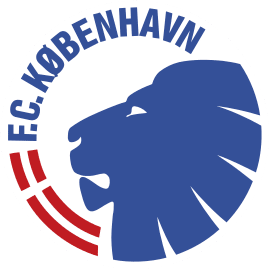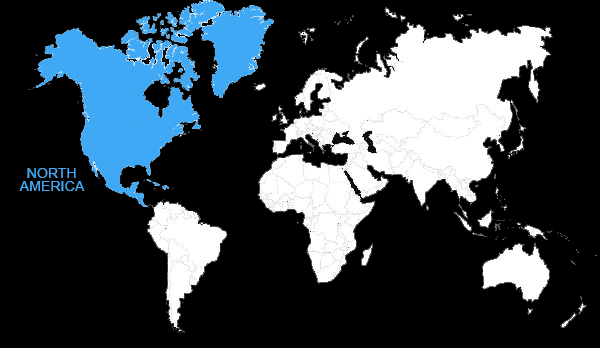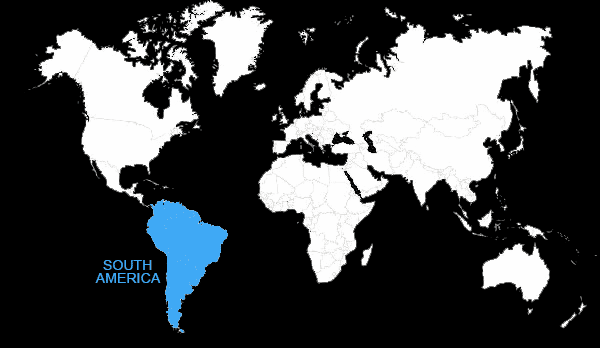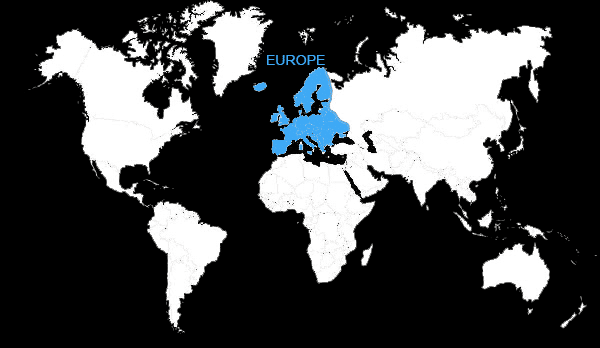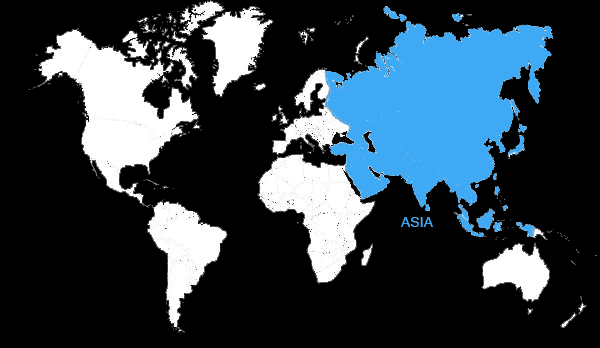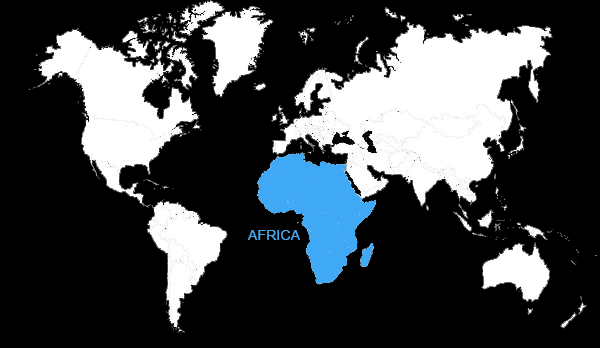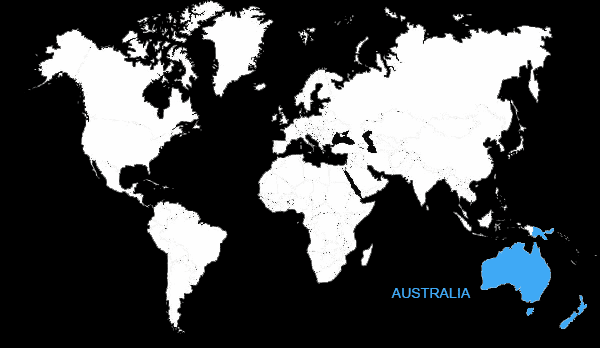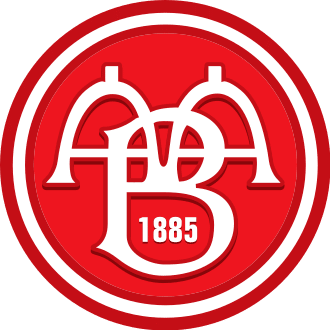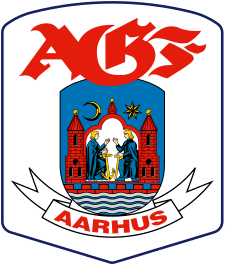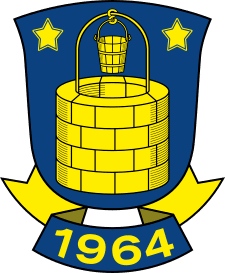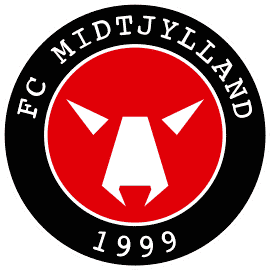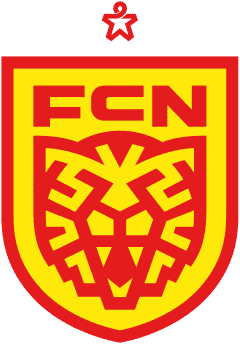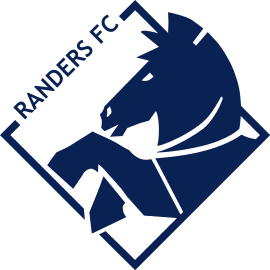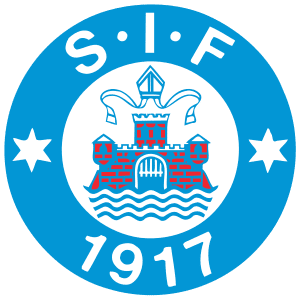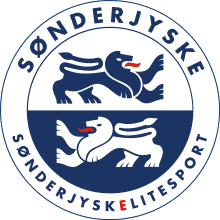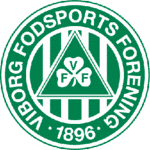FC Copenhagen Tryouts & Club Guide: History, Stadium, Players, and More!

Welcome!
Discover the world of soccer with fcscout.com, your go-to scout for club tryout information, club guides, player profiles, in-depth product reviews, and more. We’re dedicated to exploring and revealing the best in each domain, empowering you with knowledge to make informed choices.
Thank you for being here!
Hi, I’m Carlos! A coach, sports enthusiast, and the founder of FCScout.com.
I fell in love with the game at a very young age like many of you. I’ve been following and playing soccer for many years.
Throughout my career, I always enjoyed helping soccer players chase their dreams, which is why I started this website. I wanted to reach a larger audience outside of my local area and fcscout.com was born.
This website is a platform I will be using to update club pages on any tryouts, stadiums, players, tech, and more from clubs around the world. I also create free recruitment profiles for players looking to have that extra competitive edge when reaching out to clubs.
That’s it. That’s my pitch for you to stick around (or browse the site as you please).
This is already too much text for a “see more” drop-down button thing. If you want to reach out to me, head on over to my contact page 🙂

FC Copenhagen is a Danish football club based in Copenhagen, Denmark. The club currently plays in the Danish Superliga, the country’s highest football league in Denmark.
FC Copenhagen Youth Development System
FC Copenhagen’s talent department has attached competent professionals who contribute to the training of players for the super league team.

The organization of the talent department contains sporting, administrative and treatment competencies for the training of top players. The talent department includes players at U14-U19 and also has a close collaboration in everyday life with KB’s talent department on U10-U13.
FC Copenhagen Affiliated Clubs
FC Copenhagen started its program for partner clubs – Blue & White Banner – in the autumn of 2012. Today, 49 clubs are in the program and more than 33,000 football players. This is about 10 percent of all registered football players in Denmark.
The purpose is that FCK wants to take responsibility for the development of good football clubs and to create the best possible environment for football players of all ages in the city.
The program is not elitist, but an opportunity for everyone to have as good experiences as possible by playing football.
What do we offer?
Training
programs The partner clubs get access to our age-related training programs for U6 to U13 and exercise bench.
Coach training
We help train the club’s coaches so that they are better equipped for their tasks.
FCK visits From time to time
we send the FCK players on visits to selected partner clubs.
Skills training
FCK coaches come to the clubs weekly and train with the club’s girls and boys.
Børnemiljø
FCK’s consultants help with the analysis of the club and give presentations on how to develop it, as well as implementation that creates happy children in the age group 3 to 12 years.
Blue & White Banner Day
Each season, club members can have a fun experience together when we invite you to Blue & White Banner Day in the Park as a tribute to our partner clubs.
FCK Camp
Football School for U7 to U14 girls and boys at FCK and in the partner clubs.
Inmarch with the FCK players
Players from our partner clubs will have the opportunity to go on the field with the FCK players for our home matches.
Team Leo
Our Team Leo likes to come by events and rallies in our partner clubs.
FCK Tour and FCK Mini Tour
Every year we go on the FCK Tour and FCK Mini Tour, where we visit the clubs with our entire setup and the Superliga players in selected clubs.
Children’s meeting We hold a 4v4 meeting annually for the co-operation clubs’ children’s teams .
Project P
District training for U12 to U16 girls in collaboration with DBU Copenhagen.
What do we expect?
Collaboration
We expect our partner clubs to be active and committed and contribute to us being able to develop good clubs and fun experiences together.
Support
We do not expect all members to be FCK fans, but we hope that you will support us when we invite to FCK events such as Blue & White Banner Day in the Park.
If you want to know more about the affiliate club program, please contact boldibyen@fck.dk
>>Read more about Bold in the City here
>>Read more about FCK’s Strategy 2019+ here
FC Copenhagen Training Facility
After 13 years at KB’s facility, FC Copenhagen moved at the end of January 2006 into a brand new training center at Jens Jessens Vej 10 in Frederiksberg. The training still takes place on KB’s Lane 1, 2 or 3.
The training facility is colloquially called “Number 10”. Partly because of the address Jens Jessens Vej 10, but also as a symbol of jersey number 10, which in football circles has always been synonymous with creativity, high class and other positive superlatives.

Over the years, the facility has been continuously rebuilt and expanded as the staff around the team has grown. The most recent rebuilding took place in the spring of 2021, where i.a. a new Players Lounge was set up on the 1st floor.
FC Copenhagen Recruitment Trials
At the time of this writing, there are no official publishings on FC Copenhagen trials. Please come back at a later date while we monitor this club or click here to visit their official academy news web page.

EXPLORE MORE CLUBS!
Explore more professional clubs by continent.
FC Copenhagen History
Football Club Copenhagen is a club that is both young and has a long history in many respects. Despite only being established in 1992, the club has a rich history that dates back more than a century. The first team of the club is comprised of players from two separate organizations: Boldklubben 1903, which was established in 1903, and Kjbenhavns Boldklub, which was established in 1876 and is the oldest football club in continental Europe.
As a result of the financial difficulties that plagued all of the clubs in the Copenhagen region in the 1980s and the impending insolvency of Kjenhavns Boldklub, the two historic Copenhagen clubs came together and founded the superstructure that is FC Kbenhavn. Today, FC Kbenhavn competes in the Danish First Division. Kjbenhavns Boldklub was classified as the club’s official reserve squad and participated in the Danish Superliga tournament using Boldklubben’s club license. Additionally, the city of Copenhagen competed in the tournament. The Parken Stadium in Copenhagen, which is the home of the Danish national team, just underwent a major renovation, providing the newly formed club with immediate access to a state-of-the-art venue.
The initial objective of the club was to make it all the way to some kind of European competition each and every year. In order for the squad to accomplish this objective, they will require a robust economy, a sizeable fan base, and a “footballing style that is both attractive and positive.” Benny Johansen served as the club’s manager during its initial season, which proved fruitful for the organization. It was in the 1992 UEFA Intertoto Cup when FCK won its first game in a European competition, claiming a 2-1 victory over the Swiss team Grasshoppers. As a result of their victory in the Intertoto Cup, FCK earned a spot in the UEFA Cup for that season; however, they were eliminated in the second round by the French team Auxerre. The squad won the Superliga season that took place in 1992–1993 by a margin of one point over Odense Boldklub and by a margin of two points over Brndby IF, who ended in third place.
The 1993–1994 Superliga season came with a lot of anticipation attached to it. Milan, an Italian team, was blown down by a score of 0–6 to start the 1993–1994 season in the Champions League qualification game. Following their third-place performance in the first half of the Superliga season, FCK took a break over the holiday season. The spring of 1994 saw Copenhagen advance to a higher ranking than the previously dominant Silkeborg IF team. The eighth and final game of the season took place at Parken Stadium and featured a matchup between the two teams.
The game was won by FCK by a score of 4-1 in front of an attendance record-setting crowd of 26,679 people. After FCK’s season-ending loss against Odense by a score of 3-2, the team was forced to settle for second place despite having an advantage of one point above Silkeborg. In spite of the fact that they had won two Danish Cups, Copenhagen struggled in the Superliga for the three seasons that followed. In spite of having an unsatisfactory record in the league, the team defeated Akademisk Boldklub in the 1995 Cup final with a score of 5-0, so regaining its eligibility to participate in European football.
Despite the fact that Kim Brink guided the team to its second Cup victory during his tenure as manager, the team finished ninth in the Superliga during the 1996–1997 season, which resulted in the team’s second management change. In February of 1997, Flemming Stergaard, who would subsequently be known as “Don,” was given the positions of vice chairman and CEO of the club’s board of directors. After a successful initial public offering (IPO) that brought in DKK 75 million, FCK was listed on the Copenhagen Stock Exchange around the time that November 1997 rolled around.
For the first time ever, Copenhagen averaged more than 10,000 people attending their home games during the 1997–1998 season. The club made the purchase of Parken as its home stadium in June of 1998 for the sum of DKK 138 million. In January of 1999, Christian Andersen, who at the time referred to himself as the “best manager in Denmark,” was hired to lead the team as its manager. However, in March of 1999 he was fired following a difficult period of 75 days. Niels-Christian Holmstrm, who is in charge of sports operations, said that Andersen had gotten under the skin of the players.
In 1999, Copenhagen made its name known across Europe when it faced the Chelsea soccer team from England in the second round of the UEFA Cup Winners’ Cup. In the first leg’s away game at Stamford Bridge, Bjarne Goldbaek gave Copenhagen the lead nine minutes before the game’s conclusion; however, Chelsea scored in the very last second of the game. In the later stages of the second match at Parken, a goal scored by Brian Laudrup for Chelsea eliminated FCK and handed Chelsea the victory.
At the press conference that took place after the game in January 1999, it was announced that Chelsea player Brian Laudrup would be signing with Copenhagen. At the same time, Bjarne Goldbk would be traveling in the opposite direction, signing for Chelsea. Laudrup, who had previously won the accolade for Danish Player of the Year four times, was unable to assist Copenhagen in advancing in the league, and the club concluded the 1998–1999 Superliga season in seventh place. Laudrup was just a part of the team for a period of six months before he decided to leave to play for Ajax at the end of the season.
During the 1999–2000 season, it was difficult for F.C. Copenhagen to make a significant impact, as the club finished eighth in the league. During the transfer window in the winter of 2000, South African striker Sibusiso Zuma was acquired from South African team Orlando Pirates. This occurred during the same time when English manager Roy Hodgson took over as manager in May of 2000. After the 2000–2001 season, the club started making strides toward improvement. In order to win their second straight Superliga championship, the team finished the campaign with a 3-1 victory at Parken Stadium over Copenhagen Derby.
The score was now 2-0 thanks to a goal scored by Zuma. The goalkeeper for Brndby, Mogens Krogh, was unable to get a hand on the ball because he brought the ball to his chest, let it bounce in the air, and then performed an overhead kick while doing so. As a result, the ball was volleyed into the top right corner of the goal. After some time had passed, in December of 2009, this goal was selected as the best Superliga goal of the decade, the best Danish goal of the year[15], and the greatest FCK moment of all time.
A few weeks after winning the championship, Roy Hodgson ended his contract with Copenhagen and joined the Italian team Udinese. This move came shortly after winning the championship. His role was taken up by a Swede named Kent Karlsson. A very dramatic event occurred during the 2001 season, which is another facet of that year’s competition that stands noteworthy. On March 13, 2001, while the talented and dynamic midfielder Stle Solbakken was participating in practice, he suffered a heart attack.
Before commencing to give him a cardiac massage, club physician Frank Odgaard promptly responded to him and determined that the patient’s heart had stopped beating. Although it was determined that Solbakken was clinically dead at the scene when the ambulance arrived, he was brought back to life around seven minutes later as he was being transported to the hospital in the ambulance. He survived the ordeal, and doctors ultimately decided to install a pacemaker in him. Shortly after that, he announced his retirement from playing based on the medical advice he had received, although he would eventually return to the squad and go on to become its most successful manager.
In order to earn a spot in the Champions League for the 2001–2002 season, Copenhagen faced off against Lazio in Italy. When Lazio advanced with a 5-3 overall score, FCK’s first-game victory of 2-1 became worthless and irrelevant, rendering FCK’s triumph meaningless and irrelevant. Niclas Jensen’s goal on the left side of the defense helped Copenhagen beat Ajax 1-0 and advance to the next round of the UEFA Cup in the 2001–2002 season. However, Copenhagen was ousted from the competition by Borussia Dortmund of Germany in the subsequent round. In the 2001–02 Superliga season, Brndby defeated Kbenhavn to win the championship on the basis of goal differential after FCK had caught up to Brndby’s ten-point lead in the first half of the season.
This result was a letdown for Kbenhavn. The Superliga match between Brndby and FCK that took place at Brndby Stadium in the 2002–2003 season was the second-to-last one. Hjalte Nrregaard scored the game-winning goal for Copenhagen in the extra period, reclaiming the championship for Parken. In the first game of the second qualifying round for the Champions League in the 2004–2005 season, FCK earned a 2-1 victory over the Slovenian club ND Gorica. However, in the second game, FCK was defeated by Parken 0-5. Under Backe’s direction, Copenhagen captured the Danish Cup in 2004 as well as the Danish championships in both 2004 and 2006.
In addition, Copenhagen was victorious in the Royal League tournament in 2005, winning the championship match on penalties against the Swedish team IFK Goteborg. In the 2006 edition of the competition, Copenhagen achieved the same level of success, defeating Lillestrm SK of Norway 1-0 in the championship match to claim the title. Backe set a record for the longest managerial tenure at FCK before to his departure from the team in December of 2005. The new manager for the Copenhagen club is Stle Solbakken, who once played for the club.
The addition of Jesper Grnkjaer, a player who has represented Denmark at the international level, strengthened Copenhagen for the season of 2006–2007. In the qualifying rounds for the 2006–2007 Champions League, FCK was looking forward to a victory over Ajax with great anticipation. In the club’s long history, FCK competed in the Champions League group stage for the first first time this season. They were drawn in a group with Manchester United, Benfica, and Celtic, all of whom had won the tournament in the past. Despite the fact that they did not suffer a single loss at Parken, FCK was unable to proceed past the group stage of the Champions League (Benfica 0-0, Manchester United 1-0, and Celtic 3-1).
This was owing to the fact that the squad was unable to win any of its games played away from home. On May 9, Copenhagen won the league title with four games remaining by earning a 1-0 victory over Brndby. With this victory, Copenhagen won its fifth Danish championship in the last seven years. Benfica overcame Copenhagen in the third qualifying round of the Champions League in the 2007–08 season, winning 1-3 on aggregate to advance to the next round. FCK advanced to the group stages of the 2007–2008 UEFA Cup by virtue of its 3-2 victory over Lens.
In the group stages, FCK was pitted against Panathinaikos (at home), Lokomotiv Moscow (away), Atletico Madrid (at home), and Aberdeen. Despite suffering losses to Panathinaikos and Atlético, Copenhagen was able to defeat Lokomotive, which meant that all they needed was a draw against Aberdeen in order to move on to the next round. Nevertheless, a score of 0-4 to Aberdeen was enough to eliminate them from the competition.
In the 2007–08 season of the Superliga, Copenhagen finished in third place, while AaB was the team that ended up winning the championship. The 2008–2009 season for Copenhagen got off to a good start overall. The team was able to move to the group stage of the UEFA Cup 2008–09 by claiming victories over FC Moscow, Lillestrm, and the Northern Ireland club Cliftonville. FCK finished in last place in the group after playing Valencia to a 1-1 draw and losing to Saint-Étienne at home. The results of Copenhagen’s matches against Club Brugge and Rosenborg, both of which ended in a 1-1 tie, qualified them into the competition’s knockout phase.
In the opening leg of the round of 32, which took place on February 19, 2009, Copenhagen and Manchester City played to a 2-2 draw. After suffering a defeat in the second leg by a score of 1-2, the club’s run in Europe came to an end. There was fierce competition for first place in the domestic league between FCK, Brndby, and Odense. In the end, Copenhagen accomplished the Double by beating AaB in the Cup final, winning the league championship with one game left to play in the competition, and achieving this feat for the second time in the club’s history.
The year 2010 was again another productive and fruitful year for Europe. Although they were eliminated from the 2009–10 Champions League playoff match by APOEL with a score of 2-3 on aggregate, the team has already qualified for the group stage of the 2009–10 Europa League by winning against FK Mogren and Stabaek. After suffering a defeat on the road against CFR Cluj, prevailing over Sparta Prague 1-0 at home, prevailing over PSV 0-1 at away, and prevailing over Cluj 2-0 at home and 3-0 away, Copenhagen advanced to the round of 32 to take on Marseille.
The club announced in September 2019 that it would compete in future European competitions under the name F.C. Copenhagen. Additionally, UEFA indicated that it would no longer use the term “KOB” in place of “CPH.” After claiming victory over The New Saints of Wales and crowning themselves champions of the Danish Superliga in 2018–19, Copenhagen earned a spot in the second qualifying round of the 2019–20 UEFA Champions League. As a result of drawing the short straw and losing on penalties to Red Star Belgrade in the next round of competition, Copenhagen was relegated to the UEFA Europa League rather than the Champions League.
The result of this match was 3-2 against the Latvian team Riga, which ensured Riga’s progression to the Group Stage. Group B included of four teams: FC Lugano, Dynamo Kyiv, Copenhagen, and rivals Malmo FF from Scandinavia. Copenhagen finished in second place in the group. Following that, in the first round of the knockout round of the UEFA Europa League, Copenhagen was given a matchup against Celtic of Scotland. The first match, which took place in Telia Parken, resulted in a 1-1 tie.
The second match, which took place in Celtic Park, was won by Copenhagen by a score of 3-1. The next round would be played against the Istanbul Başakşehir squad from Turkey. The late penalty kick conversion by Edin Via was the difference between Copenhagen winning and losing the game, which ultimately concluded 1-0 in their favor. The subsequent comeback match that was scheduled to take place in Copenhagen was temporarily postponed because of the epidemic. On August 5, 2020, Copenhagen earned a 3-0 victory over Istanbul Başakşehir.
With this victory, Copenhagen moved on to the quarterfinals for the first first time. Bruno Fernandes scored from the penalty spot in the 105th minute of play to give Manchester United the 1-0 victory they needed to go to the semifinals versus Copenhagen. Stle Solbakken was let go by the team after they had a rough start to the 2020–21 season of the Danish Superliga and were eliminated from contention for a spot in the Europa League. After then, Hjalte Bo Nrregaard filled the role of interim manager until November 2020, when Jess Thorup was appointed to the position permanently.
FC Copenhagen Crest
Since 1992, the white jersey that FC Copenhagen wears has gone through a number of iterations; nonetheless, the club’s colors and identity have always included the club logo.

FC Copenhagen Stadium
The Parken Stadium, usually referred to simply as Parken and as Telia Parken (2014–2020), is a football stadium located in the Indre sterbro area of Copenhagen, Denmark. Its construction took place between the years 1990 and 1992. The stadium, which features a roof that can be retracted, currently has the capacity to host 38,065 spectators for football events. It serves as the primary playing venue for both FC Copenhagen and the national football team of Denmark. The stadium has the capacity to hold up to 50,000 people when it is designed with an end-stage arrangement, and it has the capacity to hold up to 55,000 people when it is designed with a center-stage layout.

One of the 12 host sites for the UEFA Euro 2020, Parken played home to four matches during the group stage and one match during the round of 16.
